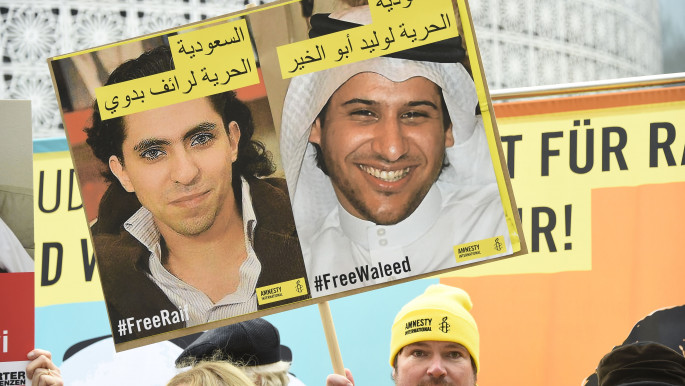Silencing online dissent in the Arab world
A new study conducted by Wafa Ben Hassine and published by the Electronic Frontier Foundation has documented how cyber-crime laws, anti-terror legislation and even legal codes on narcotics have been used by regimes to net dissenters, while doing little to tackle terrorism and its long-term causes.
In The Crime of Speech: How Arab Governments Use the Law to Silence Expression Online, Ben Hassine looks into the enforcement of counterterrorism and cybercrime laws in Egypt, Tunisia, Saudi Arabia and Jordan, and identifies numerous cases of bloggers, journalists and social media users being arrested on a number of different pretences for sharing views that contradicted state authorities.
Among the cases cited are those of Alaa Abdel Fattah – the Egyptian blogger who is currently serving a five-year jail sentence, and that of Waleed Abu al-Khair – a Saudi human rights lawyer who campaigned for reforms in his country. He also represented his fellow countryman and jailed blogger Raif Badawi. Abu al-Khair was charged under the kingdom's cybercrime law and was later handed a 15-year sentence alongside a 200,000 SR (around $53,000 USD) fine.
 |
|
| Campaigners in Germany protest against the detention of Raif Badawi and Waleed Abu al-Khair [AFP] |
Different approaches, same outcome
While highlighting a common and growing trend of stifling free speech in the four countries investigated, Ben Hassine concludes that for the purposes understanding this phenomena "there is no 'MENA'".
This is because Arab states have experienced different socio-political realities to arrive at where they are today, and rely on a variety of different legal codes and practices to curb free speech.
For instance, Saudi Arabia and Jordan were found to consistently use their anti-terror laws to tackle dissidents, while Tunisia's incursions against free expression depend heavily on its anti-defamation law. In Egypt, authorities have used anti-protest laws to carry out mass arrests of dissenters.
The need for better documentation
With the number of politically motivated arrests of activists increasing in many parts of the region, Ben Hassine has called for better mechanisms for logging instances of free speech-related arrests – especially those done under the guise of counterterrorism.
In her study, Ben Hassine was only able to base her findings on cases that are well documented, however there perhaps remain many that may have slipped under the radar.
Thus, collating information of politically-motivated arrests of activists can prove time-consuming and tedious, as the researcher mentions in her report.
She suggests that non-profit organisations can play a key role in this process by logging cases in databases that can be disseminated and shared for public use.





 Follow the Middle East's top stories in English at The New Arab on Google News
Follow the Middle East's top stories in English at The New Arab on Google News


